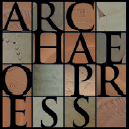
Publishing Scholarly Archaeology since 1997

Download Sample PDF
H 245 x W 174 mm
290 pages
Illustrated throughout in black & white with 9 colour plates
Published Jan 2019
ISBN
Paperback: 9781784919580
Digital: 9781784919597
Keywords
Autobiography; Cambridge; West Africa; Nigeria; Civil War; Archaeology; Excavations; Academic; Benin; Borno
From Cambridge to Lake Chad: Life in archaeology 1956–1971
Paperback
£38.00
Includes PDF
PDF eBook
(personal use)
£16.00
PDF eBook
(institutional use)
£38.00
Graham Connah's autobiography offers both a professional and personal account that traces his archaeological training and employment at Cambridge and his practical experience on British excavations, and explains how he became one of the pioneers of Nigerian archaeology during a decade in that country.
Contents
Preface ;
1. Restarting: March–September 1956 ;
2. Essays and excavations: Cambridge, October 1956–October 1959 ;
3. Lucky Jim: Cambridge, October 1959–October 1961 ;
4. A ‘first tour’ in Africa: October 1961–July 1962 ;
5. Rediscovering one’s own country: July–September 1962 ;
6. A Benin sequence and Borno reconnaissance: September 1962–June 1964 ;
7. A perfect summer: June–September 1964 ;
8. Getting to grips with Borno: October 1964–July 1965 ;
9. A long sequence at last: August 1965–June 1966 ;
10. Island refuge and Nigerian data analysis: July 1966–December 1966 ;
11. Borno again and work at Ibadan University: January–September 1967 ;
12. Civil war and analysing the Borno data: October 1967–September 1968 ;
13. War, analysis, and more excavation: October 1968–September 1969 ;
14. Adoption, writing, the war ends: October 1969–September 1970 ;
15. Study leave and goodbye to all that: October 1970–September 1971 ;
References
About the Author
Graham Connah was born in Cheshire, educated at the Wirral Grammar School, served on a destroyer in the Mediterranean, read history and archaeology at Cambridge University, and worked there as a Research Assistant. After experience on numerous excavations in Britain, including assistant director and director, in 1961 he went to Nigeria, where he spent ten years excavating and on fieldwork, the subject of this book. In 1971 he moved to the University of New England, in Australia, founding the Archaeology Department there and later becoming its Foundation Professor. He returned to Nigerian fieldwork in 1978 and 1981, and subsequently excavated in Egyptian Nubia and Uganda. He also contributed to Australian historical archaeology and founded the journal Australasian Historical Archaeology. He is a Fellow of the Royal Anthropological institute, a Fellow of the Society of Antiquaries, a Fellow of the Australian Academy of Humanities, MA (Cantab), D.Litt (UNE), and holds the Order of Australia, and the Australian Centenary Medal. He is currently a Visiting Fellow in Archaeology and Anthropology at the Australian National University, Canberra.Reviews
Reading this book what surprises is the enormous amount of detail presented in it, textually as well as in figures and photographs. The documents from Connah’s excavations and fieldwork are a valuable addition to already published material, while the text passages are fun and exciting to read. ...[Connah’s] autobiography provides a fascinating insight into a personal life and career during the pioneering days of African archaeology. - Detlef Gronenborn (2019), AZANIA:Archaeological Research in Africa

 Add to wishlist
Add to wishlist
